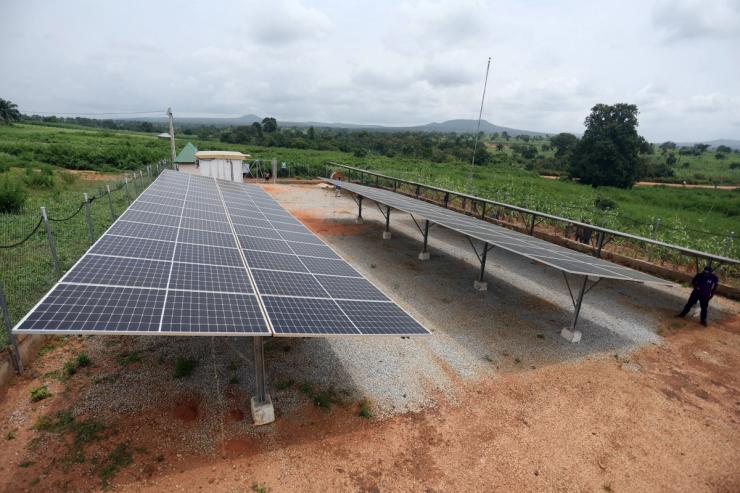The News
A Kenya-based solar power company is banking on using an $80 million loan from the World Bank’s private investment arm to meet its target of tripling sales in the world’s most electricity-deprived country within the next few years.
For nearly two decades, Sun King has sold solar-powered electronics to African households and small businesses with unreliable connections to grids, spreading full product payment over up to two years. Its kits are made in China and are now available in 11 African countries, including Nigeria where it has sold 2 million kits mostly within the last three years, founder and chief executive officer T. Patrick Walsh told Semafor.
Nigeria is where Sun King sees “the lowest rates of non-payment” for its products and is its fastest-growing market, Walsh said. Having concluded a deal this month for an $80 million loan from the International Finance Corporation (IFC) and a Nigerian bank, the company plans to rapidly scale up.
“We are probably going to grow in Nigeria by at least a factor of 3 from where we are today,” Walsh told Semafor. Tanzania, Malawi, and Togo are other markets where Sun King expects growth to speed up, he said.
In this article:
Know More
Despite its vast stores of natural gas, Nigeria has the highest number of electricity-deprived people of any country in the world, according to the World Bank and International Energy Agency. Sun King is aiming to reach the nearly 90 million Nigerians estimated to be without electricity.
Its operation relies on 9,000 agents whose job it is to physically reach potential customers living mostly outside of Lagos and the capital city Abuja. A network of 85 walk-in outlets act as touch points for after sales support.
The company is replicating a model that has served it in Kenya, where an estimated one in five households use a solar product. On a continent where more than half a billion people are without electricity — prompting international efforts like the Mission 300 agenda to provide 300 million people in sub-Saharan Africa electricity access by 2030 — Walsh is convinced that “the pathway for people to get their first connection is through solar.”
Room for Disagreement
Solar-based electricity remains a pricey proposition for many in Africa. The upfront cost of setting up panels, batteries, and an inverter to provide half-a-day of power for a Nigerian household can be up to $4,000, which could make the service out of reach for a minimum wage earner.
Step Back
Sun King learned early that its services were “not going to scale without access to finance for the end customer,” its CEO said. Offering a payment plan spread over a year has made it easier for customers to buy products, but affordability remains the company’s “biggest challenge to getting these products out there,” he said.
Walsh believes they have produced evidence of demand and adoption to secure multimillion-dollar financing deals, like the one with the IFC. In 2021, the company received a $75 million loan to expand operations in Kenya from a group of lenders including South Africa’s Standard Bank, and British International Investment, the UK’s development financier.
The loans are denominated in the local currencies, naira and Kenyan shillings, in each case. It helps the company hedge against foreign exchange volatility that makes it unfavorable to fund local currency assets with foreign currency debt, said chief financial officer Krishna Swaroop.
“We cannot solve macro-economic instability, but local currency financing makes our business stable in order to continue working and expanding,” he said.
Notable
- Nigeria’s lack of reliable electricity from the grid is “a massive drag” on the economy and residents’ quality of life, The Economist wrote this week.
- Sun King’s foray beyond solar power into clean cooking products make it a climate tech company to watch, according to MIT Technology Review.



